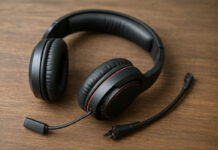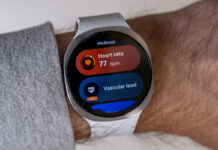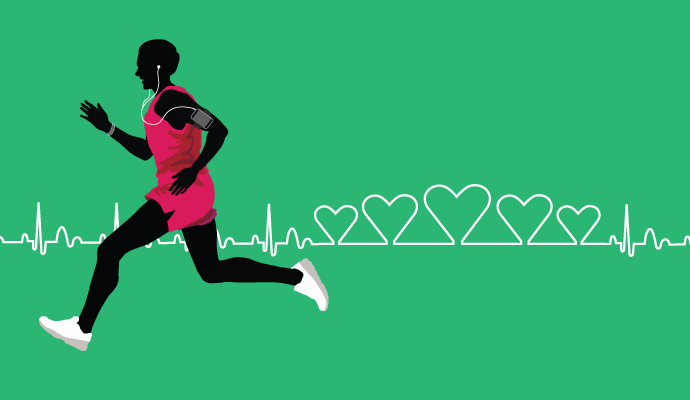
Wearable devices—namely activity trackers—are just becoming popular for their capability to track your daily activities, and more. And while they aren’t medical devices, the information they provide might be able to help you with your next doctor’s visit.
What Do Wearables Track?
Every wearable is different in form factor, and some track data that others do not. But there are a few pieces of information that essentially all of them capture.
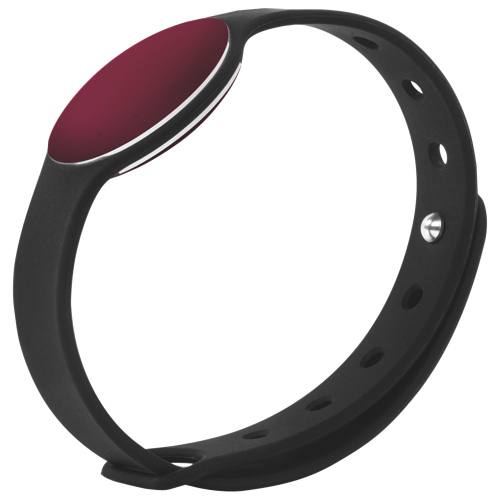 Steps Taken: Every wearable device serves as a pedometer, tracking every step you take to calculate the total number of steps so you can ensure you meet your daily, weekly, or monthly goals.
Steps Taken: Every wearable device serves as a pedometer, tracking every step you take to calculate the total number of steps so you can ensure you meet your daily, weekly, or monthly goals.
Distance Traveled: Related to the steps, most trackers will also quantify how that relates to distance. So for example, so far today, my tracker tells me that I’ve taken 4,554 steps, which equates to 2.5 kilometres. This is a great way to put the level of activity into perspective.
Calories Burned: Once understanding how many steps you’ve taken and how far you’ve walked, trackers will relate this to how many calories you’ve burned off. The Misfit Shine app, for example, works in partnership with the food diary data of the MyFitnessPal app to relate the calories you’ve burned with what you’ve consumed.
Additional Features You Might Find in Wearables
Now that we’re in essentially the second year of the wearables market, the latest wearables are adding more compelling features.
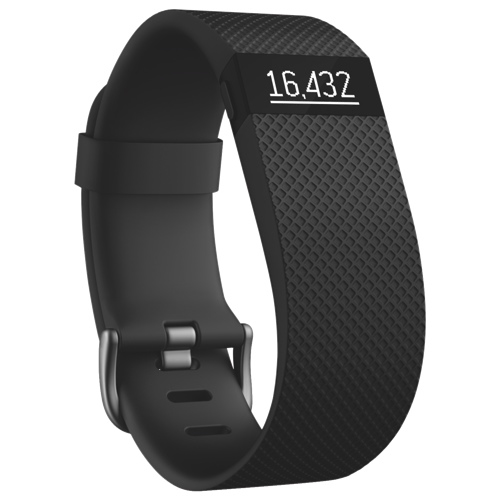
Heart Rate Monitoring: Some wearables, like the new Fitbit Charge HR, can keep track of your heart rate—in some cases continuously. This can provide insight into when you reach peak levels, what your peak levels are, and what your resting heart rate is to more accurately calculate caloric burning.
Sleep Monitoring: Many activity trackers also ironically track inactivity – not just how many hours you’ve slept, but when you went to sleep and woke up, how many hours of deep sleep you had versus light sleep, and how the pattern occurred through the night. With the Misfit Shine app, for example, you can set a sleep goal, see if you reached it, how many hours of restful sleep you got, and when those hours of restless sleep occurred, all charted out in a graph.
Sedentary Nature: Some wearables will actually notify you if you’ve been sitting too long, or if you’re ready to get up in the morning and get the activities going. The JayBird Reign goes a step further with Heart Rate Variability, which will assess your body’s state and let you know if you are ready to get more active or actually need more sleep/rest to be at your best.
Sports Activities: Some activity trackers let you monitor specific activities, like workouts, running, cycling, or swimming. You can keep track of each exercise, including how long it lasted, your peak heart rate, and how many calories your burned, and save a log of that data to find out how you’re improving, or what your level of consistency is. The iHealth Edge can even 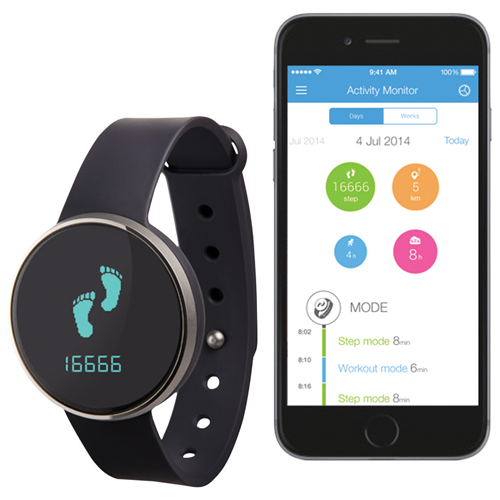 automatically detect when you’re working out and switch modes, then provide an end-of-session report when you’re done.
automatically detect when you’re working out and switch modes, then provide an end-of-session report when you’re done.
How This Can Help at the Doc’s Office
Again, I will stress that wearables aren’t medical devices. But you can use them to help with concerns you might want to discuss with your doctor at your next visit. Here are a few scenarios.
You Need to Lose Weight
With some trackers, as mentioned, you can keep a food diary that outlines everything you’ve eaten each day, the calories associated with each meal, and how that relates to the calories you’ve burned off. When the doctor asks if you’ve been keeping to a specified diet, or to describe your eating habits, you can show him a detailed day-by-day list from the partner app that might help him pinpoint problem areas. For example, it might be late night high-carb snacks that are holding you back, or too many sugary drinks. Having this information at your fingertips can give your doctor a better idea of what you might be doing wrong (or right!)
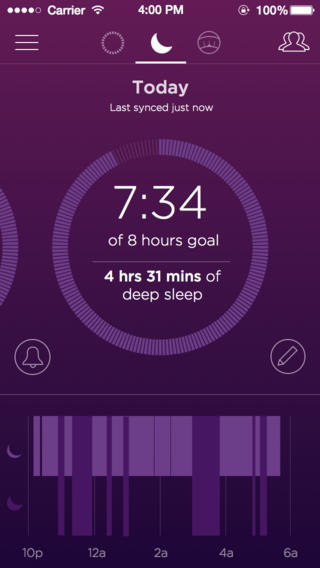 You Are Fatigued
You Are Fatigued
If you visit your doctor claiming extreme fatigue, one of the first things he might ask you about is stress levels and sleep. Are you in a high-stressed job and are you getting enough rest? The data captured in your activity tracker can give the doctor an idea of your typical sleep patterns – you might be going to bed early, but you’re restless during sleep; or you’re constantly up late and not getting the amount of sleep your body requires. Looking at heart rate data can also help give the doctor a glimpse into your stress levels, and thus suggest some ways to help ease the fatigue.
Heart Issues
Heart-related issues are nothing to joke about. You need to see a doctor immediately if you feel anything is out of whack. Using historical heart rate data captured by an activity tracker, a doctor can see if there’s been a marked rise in your typical heart rate over the past few months or even year. And your doctor may even suggest you use the tracker as a way to keep an eye on how things are going after your visit. You’ll be able to track if a new medication, or significant changes to your lifestyle produce a noticeable improvement.
The Gift of Health
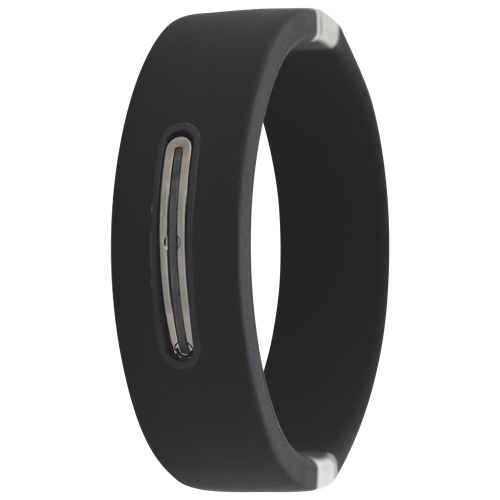 Keep in mind that you don’t only have to get a wearable for yourself. Grab one for a friend or family member who’s having health-related issues. It will allow them to effectively keep a private health diary that might awaken them to bad habits or areas of concern. And many trackers have social capabilities so you can work a competitive aspect into it. Get one for you and one for your significant other, for example, then compete over who can burn the most calories, or take the most steps, each day.
Keep in mind that you don’t only have to get a wearable for yourself. Grab one for a friend or family member who’s having health-related issues. It will allow them to effectively keep a private health diary that might awaken them to bad habits or areas of concern. And many trackers have social capabilities so you can work a competitive aspect into it. Get one for you and one for your significant other, for example, then compete over who can burn the most calories, or take the most steps, each day.
Bottom Line
Wearable devices can be fun, and give you some interesting insight into your daily habits for your own personal knowledge and tracking. But they can also truly help in improving your levels of fitness and health. Think about the next time your doctor asks you how active you are on a daily basis, if you’re getting enough sleep, or how many calories, on average, you consumer per meal. Now, you can actually whip out your phone and show him a detailed log that illustrates all of the answers to his questions and more. Eventually, mobile health will allow that doctor to tap into your data constantly, potentially detecting problems before they even occur, and preventing them from happening. Wearables are only just the beginning.

